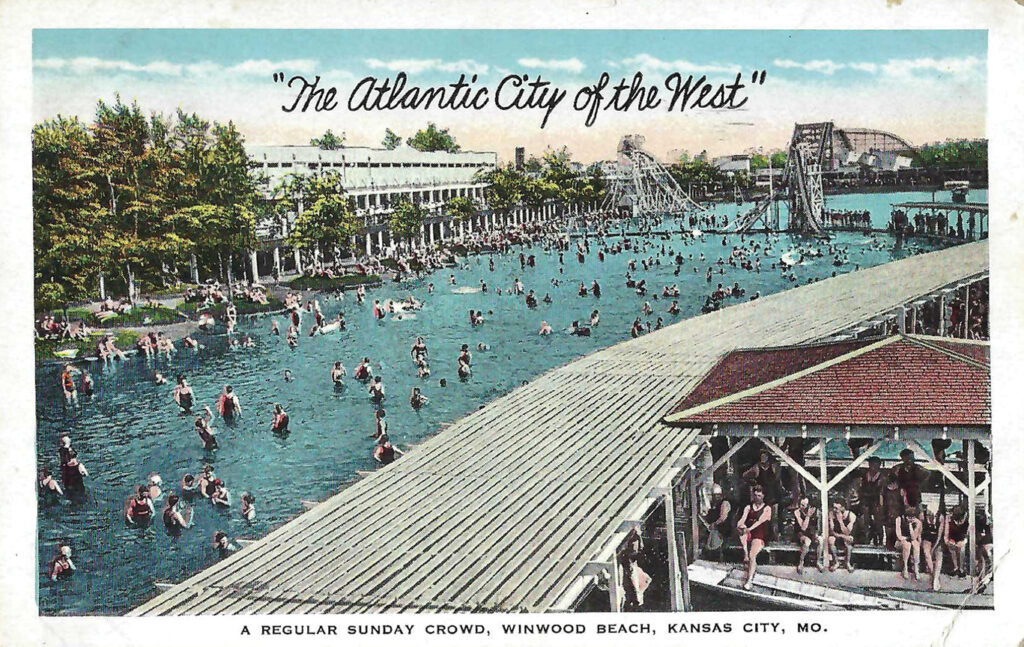
Michael Bushnell
Publisher
A mere three stops after boarding the interurban car of the KCCC&SJ’s (Kansas City, Clay County & St. Joseph) Excelsior Springs line at 20th Street and Burlington Avenue in the then newly chartered North Kansas City was Winnwood Beach — a new amusement park built alongside a small lake in burgeoning Clay County.
For the record, the first two stops along the line were Avondale and Chouteau.
Frank Winn was a noted Clay County developer who dreamed of luring busy Kansas Citians away from their homes on the weekends to his new amusement park. Following the pattern of local rail pioneer Willard Winner, Winn developed what became known as The Atlantic City of the West. Just after the opening of the new Armour, Swift and Burlington [ASB] Bridge across the Missouri River in 1911, travel northward out of the city began to skyrocket to places such as Excelsior Springs, Tiffany Springs and various other destinations north.
Winnwood Beach opened in 1912, offering patrons a zoo, roller coaster, water slide, boat rentals, a dance pavilion and Winn’s own Museum of Monstrosities – displaying oddities from around the world, much akin to P.T. Barnum.
The dance pavilion was a hotbed of jazz activity, drawing such greats from Kansas City as Bennie Moten and Charlie Parker – who played as long as Winnwood patrons could continue to dance.
Sixteen KCCC&SJ interurban trains left North Kansas City each day for Excelsior Springs and stopped at Winnwood along the way.
The park’s popularity ran much the same as that of the larger Electric Park near present day 47th Street and The Paseo. A series of fires in the 1920s destroyed the dance pavilion and the roller coaster, casting a pall over park attendance.
As Kansas City grew, the novelty of a water park faded and many of the rides and attractions were shuttered – except for the lakes, which were still a popular swimming destination for locals living in new subdivisions that sprang up near Avondale and North Kansas City.
By the time of Winn’s death in 1947, virtually all remnants of Winnwood had faded into history.
With the development of the interstate highway system, the park’s fate was sealed. Interstate 35 bisected one of the smaller lakes and Chouteau Trafficway carved an arch along the western boundary of another. The remaining lake lasted as a venue until the late 70s when the giant metal slide was torn down. In 2001, the area was developed and is now home to the Chouteau Crossings Shopping Center. Only one of the three lakes remains, and is a popular fishing spot near I-35 and Chouteau Trafficway. No other evidence of the park exists today.
















